Telegram CEO’s Arrest: A Geopolitical and Economic Powder Keg


In a rapidly evolving geopolitical landscape, the recent arrest of Pavel Durov, the CEO of Telegram, has triggered widespread controversy and speculation. What began as a seemingly isolated incident has now grown into a complex web of international intrigue, economic ramifications, and cybersecurity concerns. This article delves into the layers of this unfolding drama, examining the motivations behind Durov’s arrest, the potential economic fallout for France, and the broader implications for global cybersecurity.

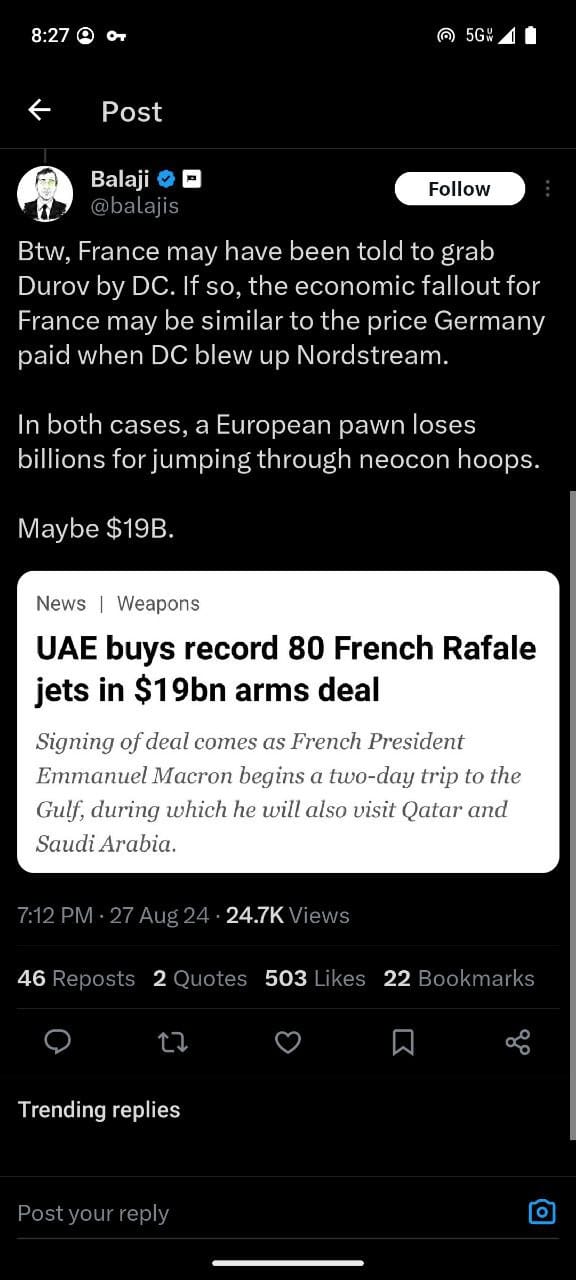
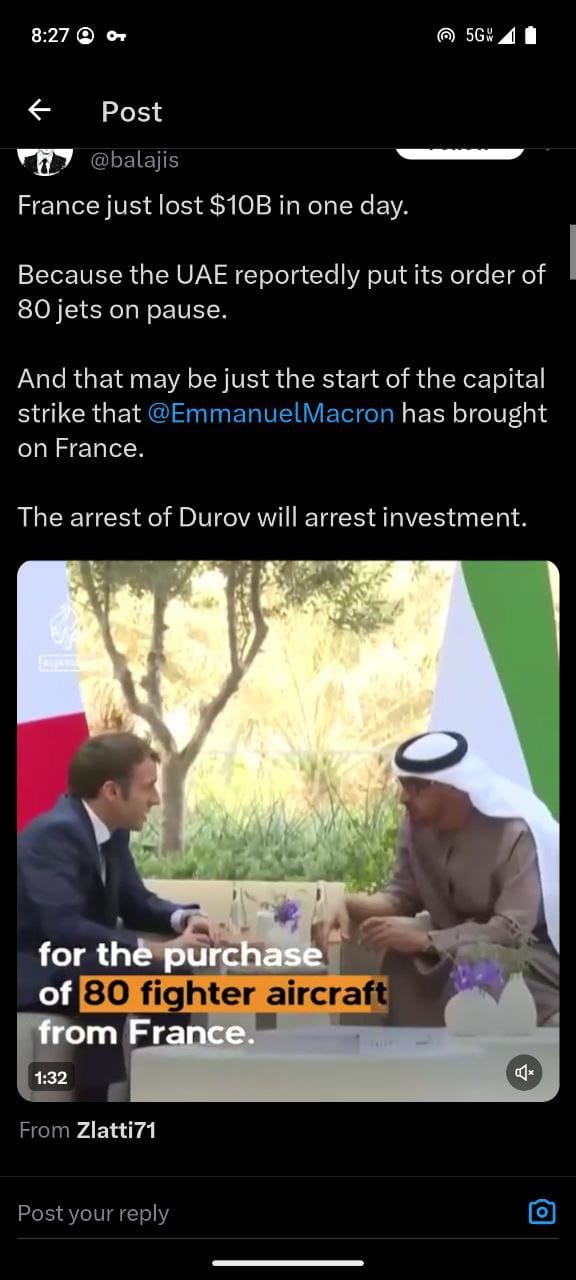
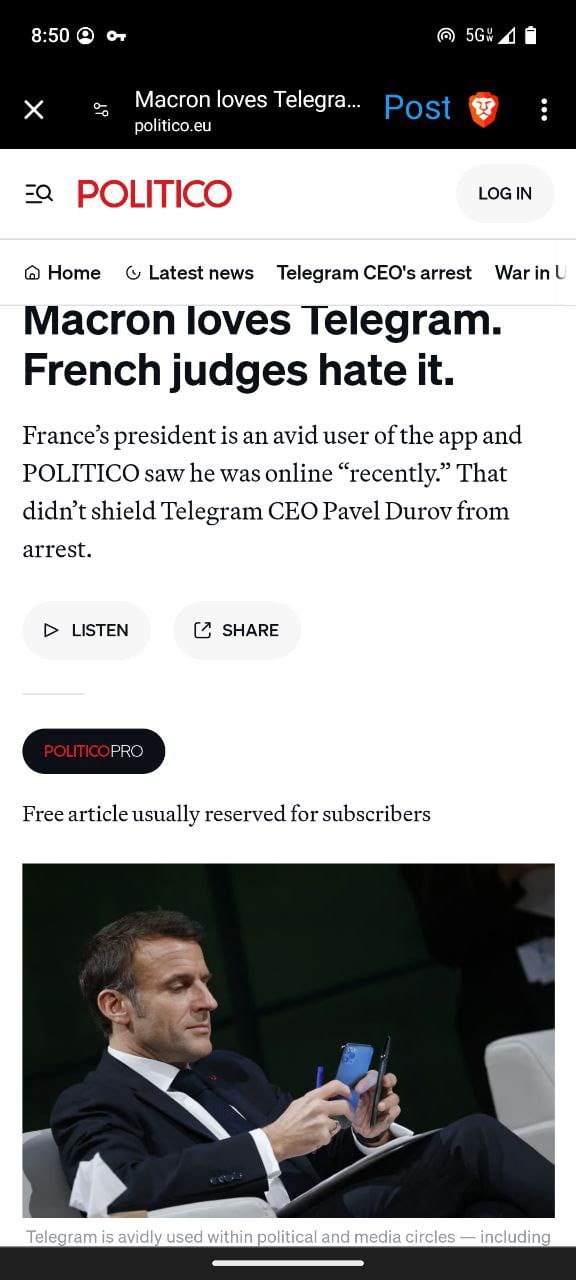
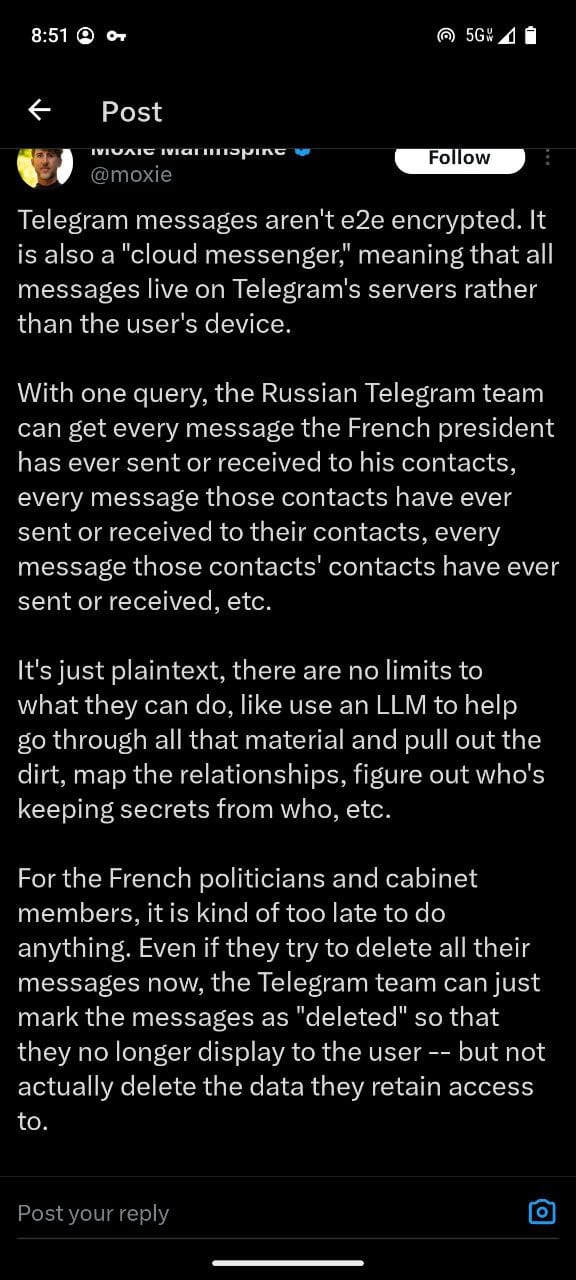
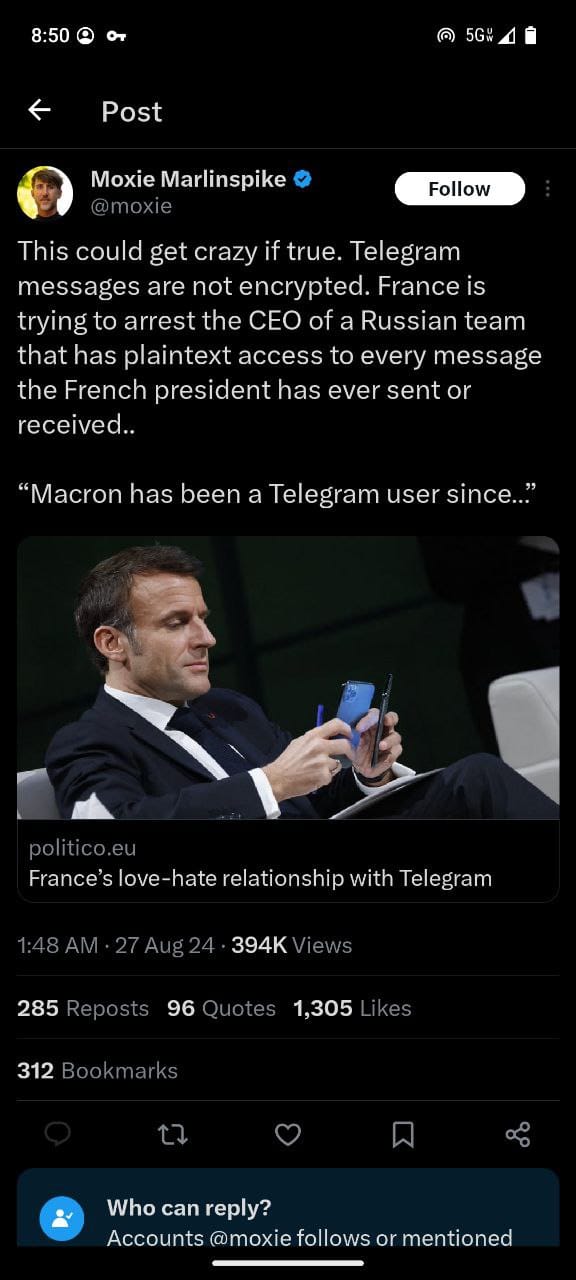
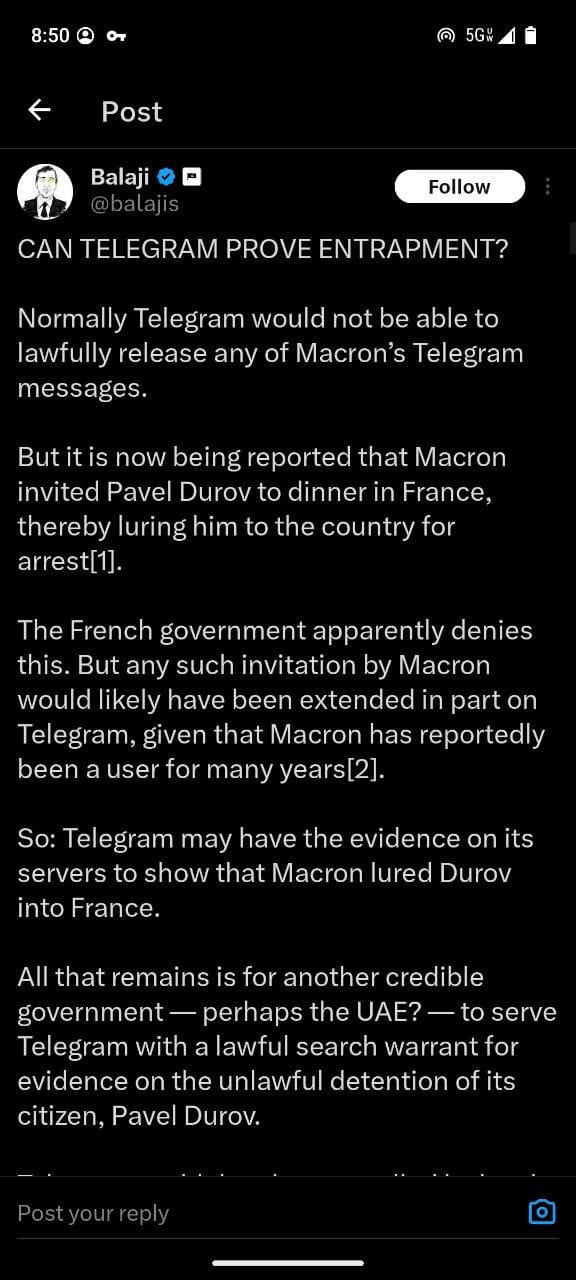
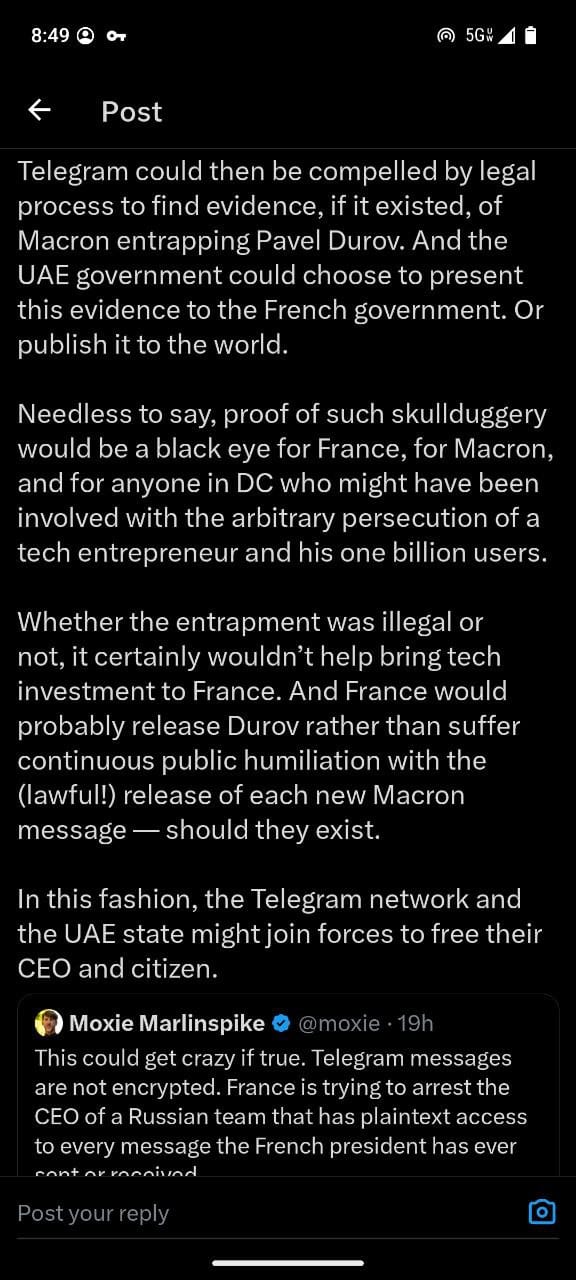
Macron’s Telegram Dilemma
Emmanuel Macron, the President of France, is a known avid user of Telegram. The platform, which boasts over 700 million users, is particularly popular among political and media circles for its encryption features and user privacy. However, recent developments suggest that Macron’s heavy reliance on Telegram may have inadvertently entangled him in the legal and political quagmire surrounding Durov’s arrest.
French judges have expressed growing concerns over Macron’s use of Telegram, particularly in light of the recent actions against Durov. As the CEO of Telegram, Durov is at the center of a legal storm that threatens to expose sensitive communications, including those of Macron himself. Speculation has emerged that Macron may have invited Durov to France under false pretenses, leading to his arrest—a move that, if true, could have profound implications for both France and the broader international community.

Entrapment Allegations: A Dark Cloud Over France
One of the most explosive allegations circulating is that of entrapment. There are claims that Macron, through Telegram, extended an invitation to Durov to dine in France, with the intention of orchestrating his arrest. If true, this would constitute a serious breach of trust and could severely damage France’s international standing.
The French government has denied these allegations, but the rumors persist. Given Macron’s extensive use of Telegram, it is plausible that any invitation to Durov could have been communicated through the platform. If evidence of such an entrapment exists on Telegram’s servers, it could lead to a significant scandal, not just for Macron, but for France as a whole.

The Role of the United States: A Geopolitical Game of Chess?
Adding another layer to the controversy is the suggestion that France may have been acting under the direction of the United States in arresting Durov. Some commentators have drawn parallels between this situation and the economic fallout Germany faced after the Nord Stream pipeline incident, suggesting that France could suffer similar consequences for what appears to be a geopolitical maneuver.
If true, this would imply that France has been used as a pawn in a larger geopolitical game, with potentially disastrous economic consequences. The arrest of Durov could trigger a series of events that lead to significant financial losses for France, as well as a broader realignment of international alliances.
Economic Fallout: The UAE Arms Deal in Jeopardy
The economic ramifications of Durov’s arrest are already beginning to manifest. The United Arab Emirates (UAE) recently placed a $19 billion order for 80 French Rafale jets—a deal that was expected to bolster France’s defense sector significantly. However, in a dramatic turn of events, the UAE has reportedly put this order on pause, a move that has already cost France an estimated $10 billion in just one day.
This decision by the UAE is believed to be directly linked to the arrest of Durov, signaling that the fallout from this incident could extend far beyond the realm of cybersecurity. If the deal remains on hold, or is canceled altogether, the economic impact on France could be severe, potentially triggering a broader crisis in French-UAE relations.
@cisomarketplace Mass Outages Hit Telegram and WhatsApp in Russia! Russia faces widespread outages of major messengers like Telegram and WhatsApp due to a DDoS attack. This follows news of YouTube slowdowns and potential future bans. Stay informed with the latest updates on this unfolding situation! #RussiaNews #TelegramOutage #WhatsAppDown #DDoSAttack #YouTubeBan #InternetFreedom #SocialMediaUpdates #TechNews #VPNUsage #MetaCensorship
♬ original sound - CISOMarketplace
Cybersecurity Concerns: The Risks of Telegram
At the heart of this controversy is the issue of cybersecurity. Telegram has long been marketed as a secure platform, with its encryption features touted as a safeguard for user privacy. However, recent revelations suggest that Telegram messages are not end-to-end encrypted by default. Instead, they are stored in the cloud, which means that Telegram administrators—and potentially, foreign entities—could have access to these messages.
For a world leader like Macron, this represents a significant security risk. If Telegram’s servers contain messages sent and received by Macron, as well as communications between his contacts, this could provide foreign actors with a treasure trove of sensitive information. The implications for French national security are profound, raising questions about the wisdom of relying on a platform that could expose the inner workings of the French government.

Data Integrity: A Ticking Time Bomb?
Even if French officials were to delete their Telegram messages now, the data might not be truly erased. Telegram’s servers could retain access to this information, marking the messages as “deleted” but not actually removing them. This presents a chilling prospect: that sensitive communications could be used against France in the future, either through legal means or as part of a broader disinformation campaign.
The potential for blackmail, diplomatic embarrassment, or worse is real. As the situation continues to unfold, it is clear that the stakes are incredibly high, not just for Macron and France, but for the global community.
Telegram messages aren't e2e encrypted. It is also a "cloud messenger," meaning that all messages live on Telegram's servers rather than the user's device.
— Moxie Marlinspike (@moxie) August 27, 2024
With one query, the Russian Telegram team can get every message the French president has ever sent or received to his…
Conclusion: The Uncertain Future of France’s Geopolitical Standing
The arrest of Pavel Durov has triggered a geopolitical and economic crisis that shows no signs of abating. From allegations of entrapment to the potential involvement of the United States, the situation is fraught with uncertainty. The economic impact of the UAE’s decision to pause its arms deal with France could be just the beginning of a broader financial crisis, while the cybersecurity risks associated with Telegram raise serious concerns about the integrity of French national security.
As the world watches this drama unfold, one thing is clear: the arrest of Durov is far more than a simple legal matter. It is a flashpoint that could reshape international relations, alter economic fortunes, and expose the vulnerabilities of even the most powerful nations. The coming weeks and months will be critical in determining the full extent of the fallout from this incident, and the role that France will play in the future geopolitical landscape.

This situation serves as a stark reminder of the interconnected nature of our world, where decisions made in one corner of the globe can have far-reaching consequences. For France, the path forward is fraught with peril, and the ultimate outcome remains uncertain.








